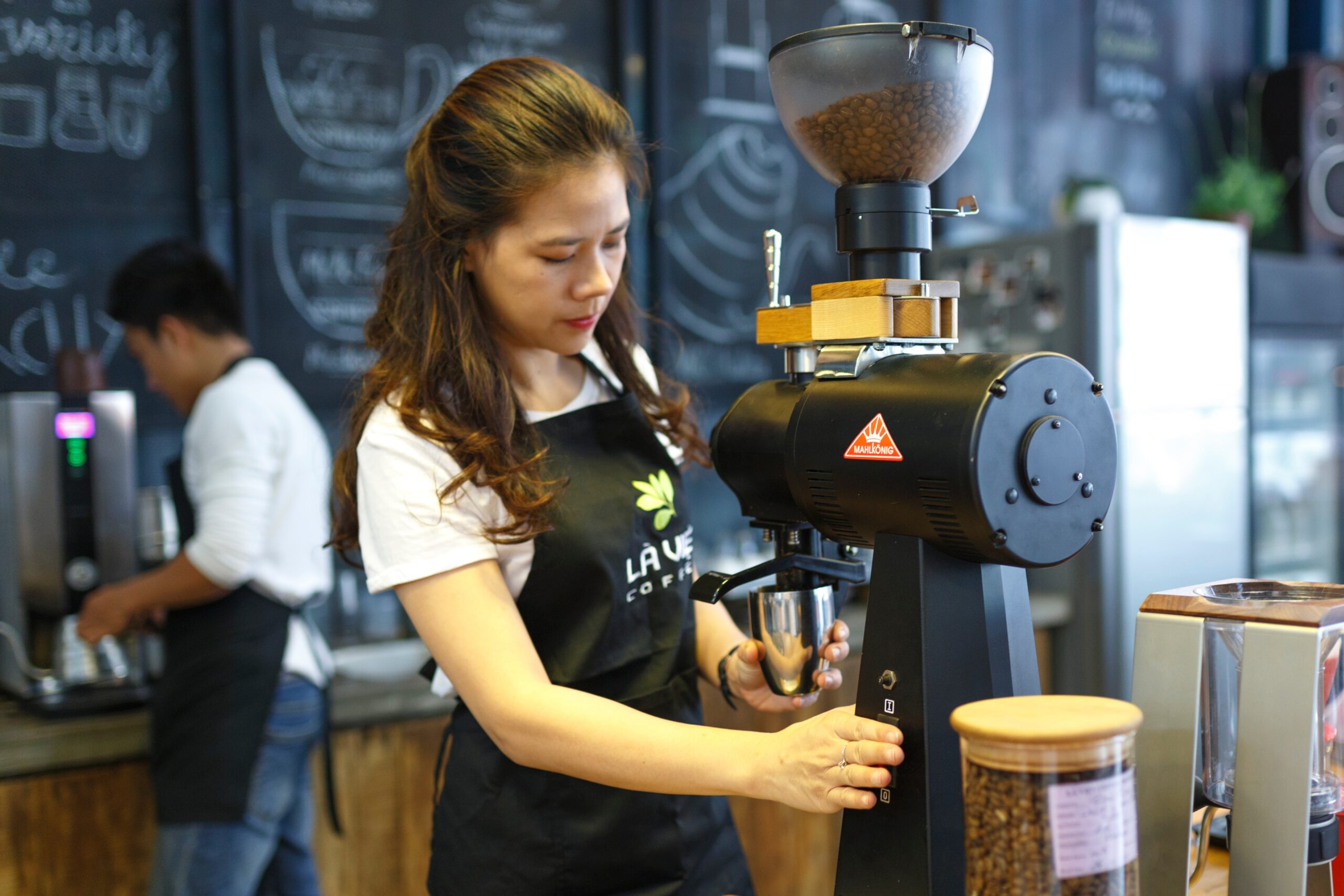Being a barista can be an appealing career choice for many individuals who have a passion for coffee, a love for customer service, and a desire to work in a fast-paced environment. However, like any profession, there are pros and cons to consider before embarking on a career as a barista. In this article, we will explore the advantages and disadvantages of becoming a barista to help you make an informed decision.
Pros of Becoming a Barista
1. No Formal Education Necessary
Working as a barista presents a unique advantage in that a college diploma is not a prerequisite for the job. This means that individuals who may not have pursued higher education or those who are still in the process of obtaining a degree can still find gainful employment in the coffee industry. The role of a barista typically involves preparing and serving coffee-based beverages, as well as interacting with customers in a friendly and professional manner. As such, the job requires a certain skill and knowledge level but not a formal education. This accessibility to employment opportunities can be a significant draw for those seeking a career in the coffee industry. If you have innate skills and are willing to work hard, formal education may not be necessary.
2. Paying off Student Loans is Possible
Working as a barista presents a unique advantage in that a college degree is not a requirement for the job. This means that individuals who choose this career path can avoid the burden of accumulating student loan debt, a common challenge many college graduates face. By opting for a career as a barista, individuals can sidestep the financial strain that often accompanies student loan repayment, which can last for several years.
3. You Can Start Earning Young
Starting a career as a barista at a young age can be a great way to earn money and gain independence from parents without the need for formal education. With the growing demand for coffee shops and cafes, the job market for baristas has expanded, making it an accessible and viable option for young individuals seeking employment. By working as a barista, one can develop valuable skills in customer service, time management, and teamwork, which can be applied to future career opportunities. Additionally, the flexible hours and part-time options make it an attractive choice for students or those with other commitments. Becoming a barista can be a rewarding and practical choice for those looking to enter the workforce at a young age.
4. Daily, Unlimited Free Drinks
For those with a penchant for coffee, indulging in complimentary coffee during their work shift is undoubtedly a perk worth relishing.
A much-needed caffeine boost can make all the difference for those working early morning shifts. Fortunately, many workplaces offer free coffee to help their employees power through the day. With the ability to customize the coffee to one’s taste preferences, it’s a simple pleasure that can greatly impact productivity and overall job satisfaction.
5. Coffee Culture and Expertise
As a barista, you’ll have the opportunity to immerse yourself in the world of coffee. You can learn about different brewing methods, coffee beans from various regions, latte art, and more. It’s a chance to develop a deep knowledge and appreciation for the art of making coffee.
6. Creative Outlet
Baristas are known for their ability to showcase their creativity through the art of latte-making and experimenting with unique flavor combinations. With the freedom to express themselves through their craft, baristas have the opportunity to create truly unique and memorable coffee experiences for their customers. Whether it’s a beautifully crafted latte with intricate designs or a bold new flavor combination, baristas are constantly pushing the boundaries of what’s possible in the world of coffee. Designing aesthetically pleasing coffee presentations and concocting unique beverage recipes can provide a sense of personal satisfaction and contribute to an elevated coffee experience for patrons.
7. Social Interaction
As a barista, one has the opportunity to engage with a diverse range of individuals on a daily basis. This profession offers a unique chance to interact with people from all walks of life, each with their own amazing stories and perspectives. Whether it’s a regular customer who stops by every morning for their usual cup of coffee, or a first-time visitor who is curious about the menu, baristas have the chance to connect with people in a meaningful way. This aspect of the job can be both challenging and rewarding, as it requires excellent communication skills and the ability to adapt to different personalities and preferences.
Working as a barista provides a dynamic and engaging work environment that is sure to keep one on their toes. For those who relish the opportunity to socialize with new acquaintances, participate in stimulating discussions, and deliver top-notch customer service, pursuing a career as a barista can be a fulfilling and satisfying endeavor.
8. Adaptable Skills
The skills acquired as a barista can be valuable in various aspects of life. Attention to detail, multitasking, time management, and teamwork are just a few of the skills that can be honed in a bustling coffee shop environment, and these skills can be applied to other professions or entrepreneurial endeavors.
Cons of Becoming a Barista
1. Demanding Work Environment
During peak hours, coffee shops can become incredibly busy and bustling with activity. Customers rush in and out, eagerly waiting for their caffeine fix. The hustle and bustle of the environment can be overwhelming, with baristas working tirelessly to keep up with the demand. Unsurprisingly, coffee shops are often considered hubs of activity, with people coming and going throughout the day. Whether you’re a regular or a first-time visitor, the energy of a busy coffee shop will surely leave an impression. Working as a barista can be a demanding role that requires the ability to perform under pressure, handle long queues of customers, and juggle multiple tasks simultaneously. As a skilled barista, you must remain calm and focused in a fast-paced environment while delivering high-quality beverages and exceptional customer service. Whether you are working in a bustling coffee shop or a trendy café, managing your time effectively and prioritizing tasks is essential to succeed in this role. During busy periods, it is common to experience both physical and mental exhaustion. This can be a challenging experience for many individuals.
2. Irregular and Long Hours
Baristas are known for their flexibility in accommodating the needs of their customers, often working early mornings, evenings, weekends, and holidays. This is a testament to their dedication to providing quality service and ensuring customers’ satisfaction with their coffee experience. Despite the demanding schedule, baristas remain committed to their craft and take pride in their ability to deliver exceptional coffee beverages to their patrons. An irregular schedule can pose a significant challenge to baristas seeking to maintain a healthy work-life balance. Such a schedule can disrupt personal routines, making it difficult to establish a consistent daily routine. This can lead to increased stress levels and a feeling of being constantly overwhelmed. In addition, extended periods of standing can lead to physical fatigue. As a result, individuals may struggle to find time for leisure activities or to spend quality time with loved ones. To overcome these challenges, it is important to establish a routine that accommodates work demands while allowing personal time and self-care.
3. Limited Career Growth
For those pursuing a career as a barista, opportunities for advancement within the coffee industry may exist, such as assuming the role of a head barista or venturing into entrepreneurship by opening their own coffee shop. However, the career path for baristas can be comparatively restricted when compared to other professions. The absence of upward mobility within a company can be a significant deterrent for individuals who are looking to advance their careers quickly.
4. Low Wages
In various parts of the world, baristas are often compensated with wages that are on the lower end of the wage scale, particularly for those just starting in the industry. While tips can provide an additional source of income, they may only sometimes be enough to meet one’s financial goals or maintain a comfortable standard of living, especially in regions with a high cost of living.
5. Can’t Save Enough Retirement Money
For many individuals, saving and investing enough money for retirement can be daunting, particularly if they are earning a relatively modest income. The reality is that without adequate financial planning, the risk of experiencing severe old-age poverty once they retire is a genuine possibility. This underscores the importance of taking proactive steps to ensure one’s retirement needs are met. Failure to do so could result in significant financial hardship during one’s golden years.
6. You’ll Encounter Difficult Clients
While most customers are generally satisfied with their experiences, there are inevitably a few who seem to find fault with even the most minor aspects of their interactions. These individuals can be a challenge for businesses to manage, as their complaints may seem disproportionate to the situation at hand. When faced with challenging circumstances, it is crucial to maintain a calm demeanor outwardly, even if you may be seething with frustration internally. Failure to do so could lead to significant emotional turmoil and conflicts.
Conclusion
Becoming a barista offers a unique blend of pros and cons. It can be an exciting career choice for individuals passionate about coffee and customer service, but it also comes with challenges. The coffee culture, creativity, social interaction, and transferable skills make it appealing. However, the demanding work environment, irregular hours, limited career growth, and potentially low wages are factors that need careful consideration.
Ultimately, deciding to become a barista depends on your preferences, long-term career goals, and financial needs. If you genuinely love coffee, enjoy working with people, and are willing to navigate the demanding aspects of the job, being a barista can provide a fulfilling and enriching experience.



